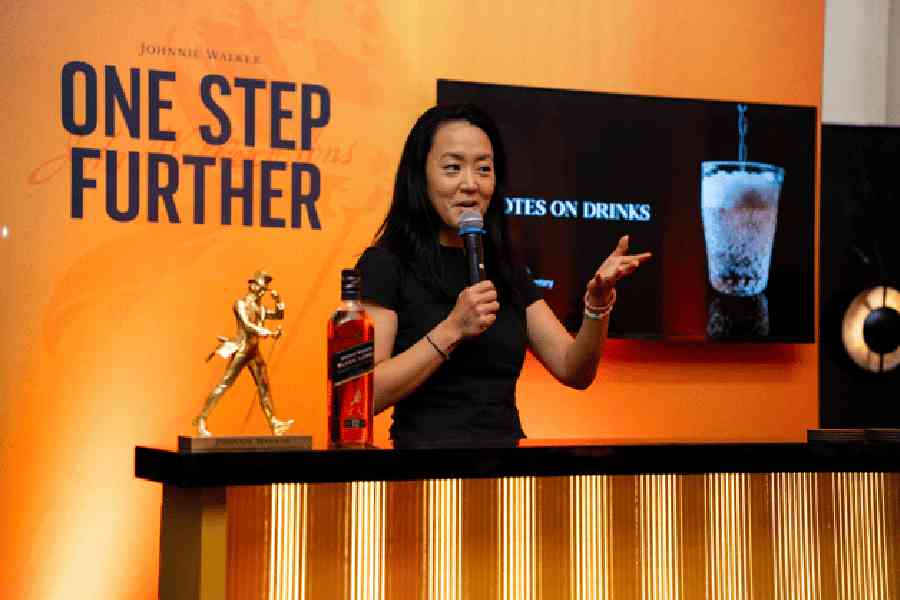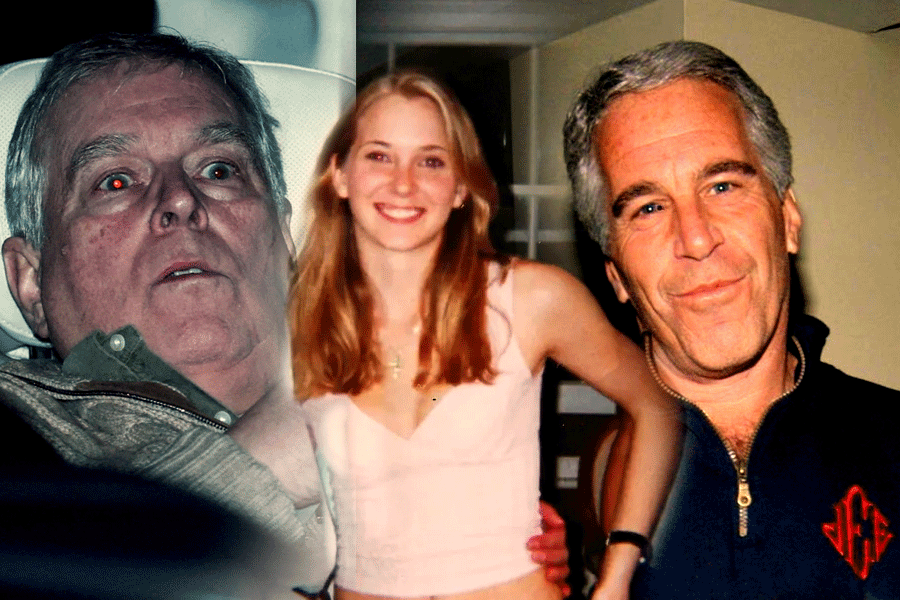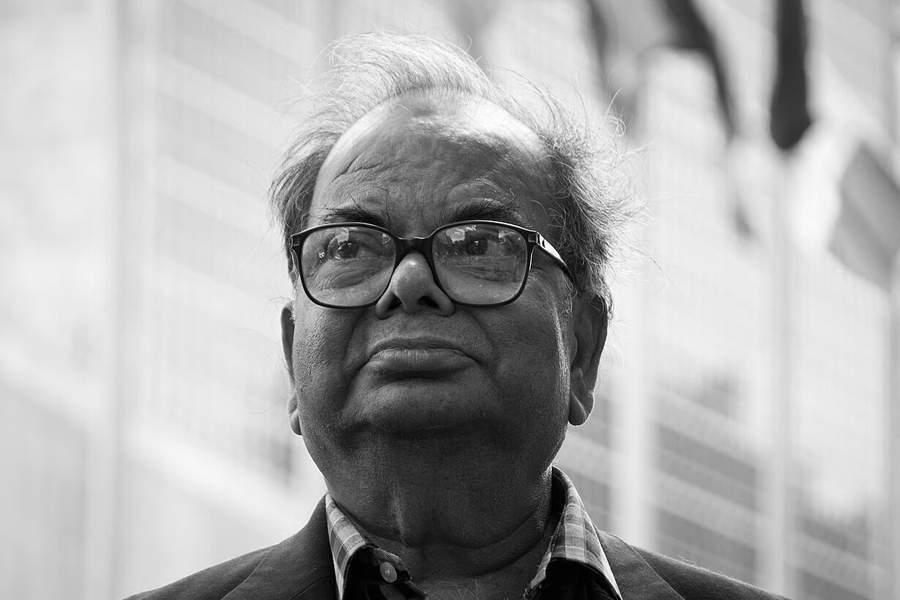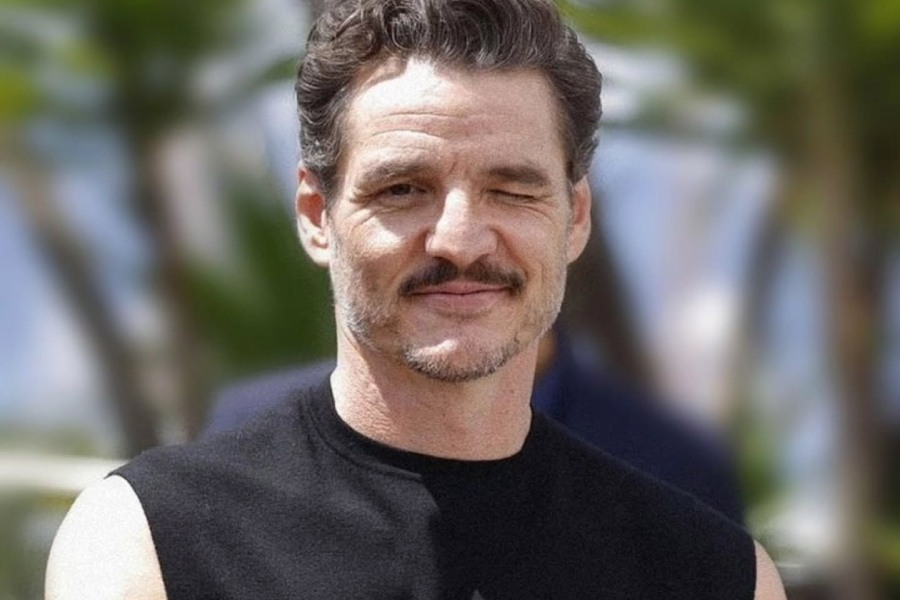Whisky cocktails are taking centre stage in the F&B industry globally and India is keeping up with it too. Jumping on the trend wagon, India got to explore more possibilities with the spirit — thanks to world-renowned bartender Monica Berg, who recently brought her craft to Delhi and Mumbai through exclusive Johnnie Walker Black Label masterclasses and bar takeovers by Diageo. Known for her inventive approach to flavour and balance, Berg showcased how Scotch whisky — once reserved for neat pours — can shine in bold, modern cocktails. Guests experienced her signature creations first-hand, each highlighting the whisky’s rich depth with unexpected yet perfectly balanced pairings.
“Globally, we’re seeing whisky cocktails become a favourite for both bartenders and consumers, and India has the talent, flavours and curiosity to be part of that movement. Monica’s creative vision and her ability to adapt whisky to local tastes made these sessions truly inspiring for both industry professionals and enthusiasts,” said Ruchira Jaitly, chief marketing officer, Diageo India.
In between making heady cocktails, t2 caught up with Monica, co-founder of award-winning Tayēr + Elementary in London, for a quick chat. Excerpts.
What were your first impressions of India? Did you get to explore the cities you’ve been to?
I haven’t got the opportunity to explore much, you know. I landed at midnight and then I went to the hotel and went to sleep. And then this morning, I have just been here, basically. I’ve always been very excited about that idea coming to India, mainly because everybody says that the fruits and ingredients here are amazing. So I was definitely excited to hopefully see some of that. But also, obviously, I think that India is such a big country that you could probably spend six months here and not even scratch the surface, you know.
"Whisky is such a versatile spirit — its depth and complexity give you an incredible canvas to work with. India’s vibrant pantry, from fragrant spices to tropical fruits, offers endless opportunities to create cocktails that feel both authentic and exciting. My goal was to showcase how whisky’s character can shine through, no matter the serve," said Monica Berg on the growing whisky cocktail culture.
What is that one global bartending trend that you think will become big in the next few years?
I mean, you definitely see the tendencies already, but I think one of the trends that you will see more and more moving forward is the kind of personalisation and individuality, more diversity, because, you know, we are definitely now in the kind of last golden age of cocktails in that sense. So, we see that the idea of what a bar should look like, should feel like, is about strategising a lot. Now people are kind of letting bars be the expression of the time and place and space that they are in.
How much importance do you think a consumer gives to the taste of the final product or is it the drama that comes along steals the show?
It depends somewhat on the maturity of the market, but I think that regardless of whether you are someone who goes for minimalism or maximalism, ultimately the drink needs to taste delicious, otherwise it becomes just a gimmick.
Take London or the UK... it’s moving more towards minimalism, in the sense that that’s the visual expression of it. But the drinks are still becoming increasingly more complex and more layered and definitely a lot of research and a lot of time is spent working on what’s inside the glass and the glass itself too. Whereas, in markets that are more young to cocktail culture, or are trying to get a footing and competing with other beverages like wines and beers, then presentation maybe is a bit more important just because it gives people the feeling of value.
Talking of trends, recently we have seen a surge in zero-alcohol cocktails… do you think it’s a passing trend or will it stay?
(Smiles) Well… I feel I am probably not the most qualified person to answer but I think from what I can observe in my own market, this low-alcohol/no-alcohol had a much bigger presence before the pandemic. I think that it’s less now.
In your opinion, how has the definition of a great bar evolved over the last decade?
I think that the core expression of what a great bar is has not necessarily something that has changed, because it’s a space that you come to enjoy yourself. But what goes into that maybe has changed, in what we expect from that space. I mean, a great bar, whether it’s cocktails, or whisky, whether it’s beer or wine or, no-alcohol, it’s not like a social gathering place but a place where people come to have fun, to escape, maybe a little bit. I think a great bar is a place where you feel welcomed, you feel taken care of, you feel seen, and you feel like you want to spend time there.
What are the qualities that define a great cocktail?
I think that a great cocktail, regardless of what it is, needs to be delicious because if it’s not delicious then what is the purpose? I also think it needs to be balanced. It needs to be a little bit unexpected. Regardless of what it is, it needs to deliver on the expectations that has been set, like if it is supposed to be cold, it needs to be cold, or warm if it needs to be warm.
You’ve been advocating sustainability for a long time, but now it’s become like a buzzword. Tell us how you think bars can reduce waste without compromising on the creativity aspect?
By critical thinking and questioning that why things are done. There are times when you go into bars and you go into spaces like restaurants or people’s houses and you start to ask them, why do you do this. And most of the time the answer is just, oh, because we have always done it like this! But because you always did something doesn’t mean that you always need to do it the same way. For example, we have one of one most popular drinks at our bar, Cedar Wood Old-fashioned, and it comes with orange zest. But how much of the orange peel do you actually need? Very little. Let’s say for 100 old-fashioned one makes in a day, three oranges are cut for the zest.
You are at a Diageo event in India, what are you most excited about?
I’m just excited to learn about the new culture and learn about new flavours, seeing ingredients in their natural habitats, understanding why it’s natural for Indian bartenders to combine these flavours. You know, is it part of the heritage, part of the palate…?
If you had to design a drink that is inspired entirely by India, where would you begin in terms of the story, technique and flavours?
I don’t know, but I think that it would be quite aromatic and quite layered. I would use a lot of spices… and would say that the brand that I’m here with now would be a good starting point, because I think it’s part of the flavour profiles of what I recognise as kind of Indian. I would start with Johnny Walker Black that is rich enough to enjoy with the addition of other big flavours. Then probably throw a lot of extraction, infusions, those kind of things on the side ingredients, may be.
You are also known for pushing the boundaries. Has there been anything that you failed in making but learnt something in the process?
I try a lot of things and I fail all the time (smiles). One of my favourite aromas is Hinoki but Hinoki wood itself you cannot use in cocktails because it’s something poisonous, but it took me almost two years to make an alternative that smells and behaves the same way Hinoki did and it was through a lot of mistakes, a lot of failures, tests and trials that we finally managed to do it! Each time you don’t succeed, I don’t think it’s a failure, it’s just a step towards the right direction. Also on our cocktail menu if it’s there it doesn’t necessarily mean they are done… they will have tweaks throughout.
So many people look up to you to learn from your experience. Where do you draw inspiration from?
Hmm... a lot of things. Actually, I am very inquisitive, I don’t like to be bored. I like learning new things and one thing I would say is constant in my life is I seek — new experiences, knowledge, new information. Just for fun, I like to take courses.
And who gets to try your creations first?
We do R&D every Wednesday with members of the team. We have a rule that we work as a team but end of the day all of the drinks are tasted by everybody on shifts at that time and everybody needs to say yes to it, else the drink cannot go on the menu.
If cocktails could tell stories, what will your signature drink tell about you?
Probably that it would be something unexpected! (Smiles)
Lastly, which country according to you is currently pushing the most innovative boundaries when it comes to drinks?
I still think London is the most exciting cocktail city in the world, mainly because of the diversity of the people that are there and people with first-hand experience from any culture. Then it would be Mexico City because it has a lot of natural resources, the same way it’s in India. Mexico City has had generations of bartenders come through and the new generation is very proud of their heritage. Then one city I was excited the last time I was there was Bangkok.










